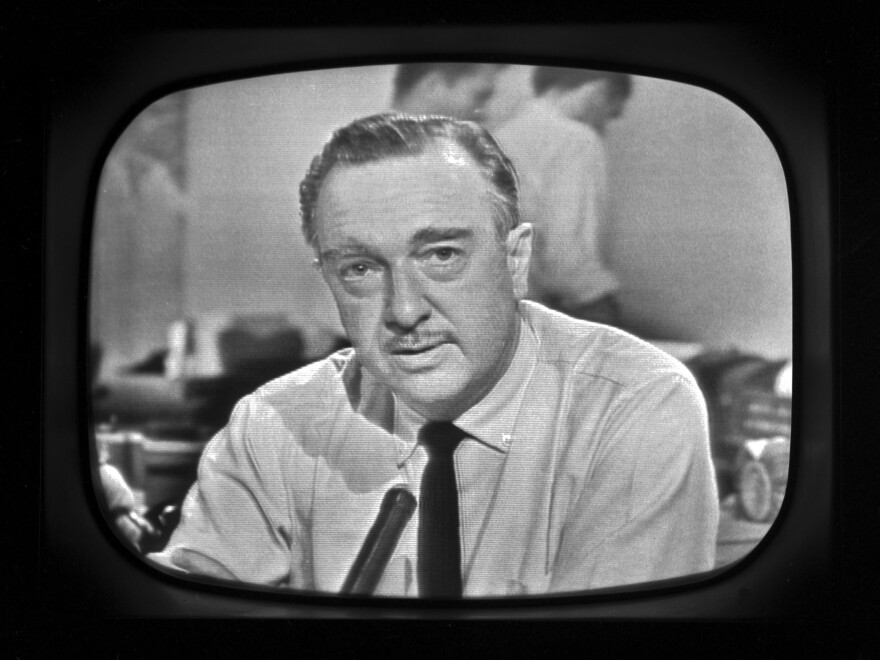The story of the assassination of President John F. Kennedy has been told many times by many people. Among those who told it first was the late Walter Cronkite. He anchored the CBS News coverage during the first hours after bullets hit the president in Dallas on Nov. 22, 1963, 50 years ago Friday.
A decade ago, Cronkite put together a story about that fateful day for NPR. He combined his recollections with several remarkable recordings from the day of the assassination, recordings few had heard before.
Cronkite's reminiscences were rebroadcast Friday on All Things Considered. The audio of the story is above.
Cronkite, who covered some of the biggest stories of the last half of the 20th century, remembered that Friday in 1963 vividly: a slow day that burst into action when the first dispatches from Dallas went out.
"UPI teletypes around the world started ticking out the news," Cronkite recalled. "One of them was on the communications deck of Aircraft 972, where the radio officer blinked in disbelief at what he read."
That plane — which held two-thirds of Kennedy's Cabinet, including Secretary of State Dean Rusk — was 900 miles west of Honolulu, en route to Japan, when the news came that the president had been shot. Tape of the ground-to-air communications between 972 and the Situation Room in Washington, D.C., sat largely unnoticed for decades at the National Archives. The tapes were recorded by the Signal Corps at Andrews Air Force Base.
We've posted here those recordings, which Cronkite described as "a strikingly immediate document of men caught in a historic crisis," in both condensed and unabridged form. In addition to communications with Aircraft 972, the National Archives tapes record dispatches from Air Force One as it carried Kennedy's coffin and the newly sworn-in President Lyndon Johnson back to the capital.
"Government was being improvised in the air," Cronkite observed, as small but necessary decisions, like the equipment needed to transport the coffin, were being made en route.
These communiques and other tape from the archive, weaved into Cronkite's remembrance of the events from where he sat at CBS News, paint a remarkable picture of the day the 35th president of the United States was assassinated.
Copyright 2023 NPR. To see more, visit https://www.npr.org.






